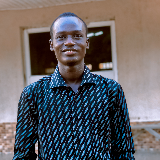Table of contents [Show]
What is Vaginal and Vulvar Cancers?
Both vaginal cancer and vulvar cancer refer to malignant growths in the female genital tract vaginal cancer in the lining of the vagina, and vulvar cancer in the external genital tissues such as the labia and clitoris. While both are rare compared with cervical or uterine cancer, they carry serious health implications and require careful attention and early detection.
A woman encountering symptoms like persistent itching or new sores may look into “vulvar cancer signs persistent vulvar itching” or “vaginal cancer spotting post-menopause” in her search for clarity. Because the onset is often subtle, terms like “early warning signs of vulvar cancer sore” or “vaginal cancer symptoms unusual discharge” appear when individuals try to differentiate benign conditions from serious ones. Understanding what these cancers are and how they differ from infections or benign growths is the first step toward timely diagnosis and treatment.
Symptoms of Vaginal and Vulvar Cancers |
In the early stages, symptoms of vulvar and vaginal cancers might appear vague: persistent itching, unexplained bleeding, lumps or wart-like growths on the genital area. For vulvar cancer, common presentations include a lump, a wart-like bump, or an open sore on the vulva that doesn’t heal. A woman might search “vulvar cancer lump labia majora” when she notices an unusual growth on her outer genital folds.
For vaginal cancer, symptoms can include abnormal vaginal bleeding between periods or after intercourse, pelvic pain, or a mass in the vagina. Terms such as “vaginal cancer bleeding after sex” or “vaginal cancer feeling like UTI” reflect this search pattern. Because symptoms often mirror less-serious conditions like infections or benign skin changes, it is critical to investigate persistent or unusual signs. For instance, a persistent vulvar lesion that doesn’t respond to standard treatment may prompt a search for “vulvar cancer sore not healing.”
Causes of Vaginal and Vulvar Cancers |
- Human papillomavirus (HPV) infection: Many vulvar and vaginal cancers are linked with certain strains of HPV, particularly among younger women or those with persistent viral infection.
- Chronic skin conditions or irritation: For vulvar cancer, conditions such as lichen sclerosus or chronic vulvar inflammation raise risk.
- Age and weakened immunity: The risk of these cancers increases with age; vulvar cancer often appears in older adults (average around age 65) and those with immune suppression.
- Exposure to certain hormones or chemicals: Risk of vaginal adenocarcinoma may be elevated in women whose mothers took DES (diethylstilbestrol) during pregnancy.
- Lifestyle factors: Smoking, multiple sexual partners, and early first intercourse heighten risk in vulvar malignancy.
Transmission of Vaginal and Vulvar |
It’s important to distinguish that vaginal and vulvar cancers are not transmitted like infectious diseases. However, they may spread internally for example from the vulva into nearby lymph nodes, urethra, or vagina and beyond if untreated.
Transmission in the sense of infecting someone else does not apply, but behaviors that lead to HPV infection (such as unprotected sex or multiple partners) can increase risk and are sometimes explored under the phrasing “vulvar cancer after HPV infection partner risk.” Furthermore, progression of disease from a precancerous lesion (like vulvar intraepithelial neoplasia) to invasive cancer is a form of internal “spread.” Early detection through terms like “vulvar cancer early stage self check labia” or “vaginal cancer pelvic exam frequency” becomes critical for intercepting spread.
Prevention Strategies of Vaginal and Vulvar Cancers |
- HPV vaccination: Vaccines that protect against high-risk HPV strains reduce the likelihood of HPV-related vulvar and vaginal cancers. Searches such as “HPV vaccine protect vulvar cancer risk” reflect this.
- Safe sexual practices and limiting partners: Reducing exposure to HPV and other genital infections lowers risk, described in queries like “vaginal cancer multiple sexual partners risk.”
- Avoiding smoking and maintaining immunity: Smoking cessation and good general health reduce risk of mutation accumulation in genital tissued look into “vulvar cancer smoking cessation benefit.”
- Routine gynecological exams and monitoring of precancerous lesions: Women may search for “vaginal cancer screening guidelines post-menopause” or “vulvar intraepithelial neoplasia surveillance.”
- Self-examination of external genitalia: Detecting lumps, sores or changes early makes phrases like “self exam vulva for cancer” common.
- Addressing chronic genital skin conditions: Timely management of conditions such as lichen sclerosus may prevent progression to malignancy, seen in “vulvar cancer risk lichen sclerosus management.”
Vaginal and Vulvar Cancers Treatment Medication and Supplements |
Forever Aloe Berry Nectar is a nutrient-rich natural supplement that combines the healing properties of aloe vera, cranberries, and apples, formulated to support women’s reproductive and immune health, especially during or after treatment for vaginal and vulvar cancers. This refreshing drink provides essential antioxidants, vitamins, and plant compounds that help the body recover, strengthen tissues, and maintain internal balance. The main ingredient, 90.7% pure inner leaf aloe vera gel, is known for its powerful anti-inflammatory and cell-regenerative effects. In cases of vaginal or vulvar cancer, where inflammation, irritation, and tissue damage may occur due to treatment or the condition itself, aloe vera helps soothe mucous membranes, promote faster wound healing, and support healthy cellular renewal. Its natural enzymes aid digestion and nutrient absorption, ensuring the body can effectively use vital nutrients for recovery and immune function.
Cranberries, rich in proanthocyanidins and vitamin C, help protect the urinary and reproductive tract from bacterial infections that can worsen discomfort during cancer therapy. They also possess potent antioxidant properties that neutralize free radicals, reducing oxidative stress that may contribute to abnormal cell growth. By keeping the urinary tract clean and the immune system resilient, cranberries support overall pelvic health and healing.
Apples add natural sweetness along with a wealth of phytonutrients, fiber, and vitamin C. The antioxidants in apples protect body cells from damage caused by oxidative stress and enhance detoxification, which is important during cancer recovery. Their pectin fiber also helps remove toxins and maintain digestive balance, preventing inflammation that could impact the reproductive organs.
Forever Aloe Vera Gel plays a vital role in supporting recovery and cellular healing for women managing vaginal and vulvar cancers. The pure inner-leaf aloe it contains is rich in bioactive compounds such as acemannan, aloin, and emodin, which enhance immunity and promote tissue regeneration. These compounds possess strong anti-inflammatory and antimicrobial properties that help soothe irritation in the vaginal and vulvar regions, reduce oxidative stress, and aid in the repair of damaged tissues caused by cancer treatments such as radiation or chemotherapy.
Aloe Vera’s antioxidants, including vitamins A, C, and E, help neutralize free radicals that damage cells, while its natural enzymes promote detoxification and improve the body’s ability to absorb nutrients essential for healing. By supporting liver and kidney function, Forever Aloe Vera Gel helps the body eliminate toxins efficiently, creating a healthier and strong immunity against infections and inflammation commonly caused by cancer progression or treatment side effects.
Forever Vitolize Women complements this healing process by addressing the hormonal and metabolic imbalances that often accompany cancer treatment and menopause. Its natural blend of fruit extracts and essential vitamins works to balance estrogen levels, reduce stress, and improve urinary and reproductive health. The presence of natural phytonutrients enhances hormonal equilibrium, easing discomfort such as hot flashes, dryness, and mood fluctuations that can worsen during or after cancer therapy.
The antioxidants in Vitolize Women also help protect cells from oxidative damage, while nutrients such as magnesium and B vitamins support the nervous system and improve energy metabolism, allowing the body to cope better with treatment-related fatigue. By promoting hormonal balance and reducing inflammation, Vitolize Women helps restore natural comfort and vitality, improving quality of life for women facing genitourinary health challenges.
Forever Garcinia Plus offers indirect but valuable support for cancer recovery by enhancing metabolism and managing body weight, both of which are important in maintaining a strong immune response. Its key active compound, hydroxycitric acid (HCA), derived from Garcinia cambogia, limits the conversion of excess carbohydrates into body fat, helping the body use stored fat as a clean energy source. This metabolic support reduces inflammation associated with obesity and hormonal imbalance, two factors that can worsen cancer risk or slow recovery.
Additionally, the chromium in Garcinia Plus helps regulate blood sugar levels, preventing energy crashes and maintaining stable insulin responses that aid in tissue repair. By promoting a balanced metabolism, the supplement contributes to maintaining a healthy weight and preventing the recurrence of chronic inflammation that often fuels cancer cell growth.
Champion Special Powder offers a more targeted natural defense against infections and inflammatory conditions that may accompany or complicate cancer. Its blend of four potent African medicinal plants Spathoda campanulata, Fagara zanthozyloides, Anthocleista Nobilis, and Alstonia Boonei provides comprehensive antibacterial, antifungal, and antiviral protection.
Spathoda campanulata supports tissue healing and relieves inflammation in the genital and urinary tract, which is critical for women recovering from surgical or radiation interventions. Fagara zanthozyloides enhances circulation and detoxification, ensuring that metabolic wastes and dead cells are cleared efficiently, thereby reducing the risk of infection.
Anthocleista Nobilis contributes to blood purification and liver support, strengthening immunity and enabling the body to handle both toxins and treatment stress. Alstonia Boonei fortifies immune defense and helps combat fatigue, fever, and microbial infections that may develop during cancer recovery.
Together, these herbs purify the body, support cellular regeneration, and promote long-term wellness, helping women regain balance and resilience in the aftermath of vaginal or vulvar cancers.

 Kefas Solomon
Kefas Solomon

Leave a comment
Your email address will not be published. Required fields are marked *